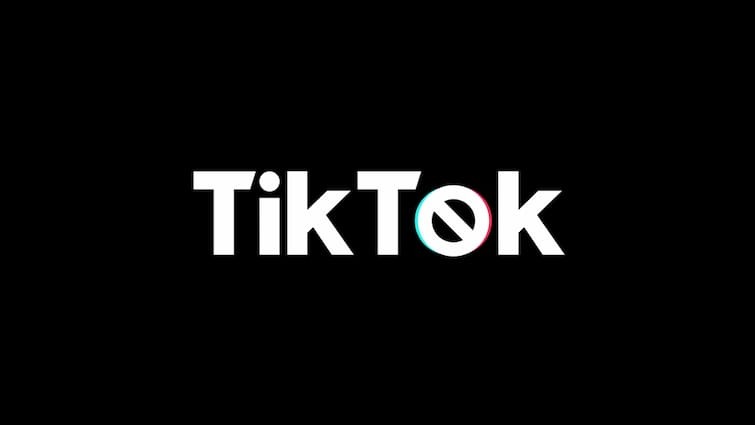
In a significant development in the ongoing battle between TikTok and U.S. authorities, the popular short-form video platform has disconnected access to its American users as a nationwide ban officially comes into effect. The decision marks a turning point in the global tech landscape, as a social media platform of TikTok's scale and reach is forced to cease operations in one of its largest markets.
The move has left millions of TikTok users in the United States scrambling for answers and alternative platforms. This article explores the reasons behind the ban, its immediate consequences for users, and the larger implications for digital freedom and geopolitical tensions.
The TikTok Ban: What Led to This Moment?
The TikTok ban in the United States has been in the works for several years, fueled by growing concerns over data privacy, national security, and the platform’s ties to the Chinese government. ByteDance, TikTok’s parent company, is headquartered in Beijing, which has led U.S. lawmakers to question whether user data collected by TikTok could be accessed by the Chinese government.
- National Security Concerns: U.S. officials have long argued that TikTok poses a national security risk. They allege that the app’s vast data collection could allow the Chinese government to spy on American citizens or manipulate public discourse.
- Failure to Address Security Issues: Despite multiple rounds of negotiations and attempts by ByteDance to assuage U.S. concerns—such as plans to store American user data domestically—lawmakers and regulators remained unconvinced.
- Escalating Geopolitical Tensions: The TikTok ban is part of a broader trend of increasing scrutiny of Chinese-owned tech companies, reflecting heightened tensions between the U.S. and China in areas such as trade, technology, and military power.
How the Ban Came Into Effect
The U.S. government officially enacted the ban after repeated warnings and legal proceedings. TikTok was given a deadline to either divest from its Chinese parent company or face a complete shutdown of operations in the United States. ByteDance was unable to meet these demands within the stipulated timeframe, resulting in the enforcement of the ban.
TikTok began disconnecting access to its American user base as the ban took hold. Users attempting to log into the app were met with error messages or notifications stating that the service was no longer available in their region.
Immediate Impact on Users
TikTok’s abrupt disconnection has left millions of users in the U.S. unable to access the platform. The app, which had become a cultural phenomenon in the country, was a hub for creators, businesses, and casual users alike.
- Creators in Limbo: Content creators who relied on TikTok for their income and influence are now scrambling to migrate their audiences to other platforms like Instagram Reels, YouTube Shorts, or Snapchat Spotlight.
- Businesses Affected: Small businesses and brands that used TikTok for marketing and customer engagement have been forced to rethink their strategies. TikTok's unique algorithm and massive user base made it a lucrative platform for advertisements.
- Lost Entertainment: For millions of casual users, TikTok was a source of entertainment, education, and connection. Its sudden disappearance has left a void in their digital lives.
Alternatives to TikTok
As TikTok disconnects from the U.S. market, many users are exploring alternative platforms to fill the gap. Some of the most popular options include:
- Instagram Reels: Part of the Instagram app, Reels offers short-form video creation and has seen significant growth as a TikTok competitor.
- YouTube Shorts: YouTube's dedicated short-video feature allows creators to upload TikTok-like content while leveraging the platform’s existing audience.
- Snapchat Spotlight: Snapchat's Spotlight feature focuses on short videos and has started to gain traction among creators.
- Triller: A U.S.-based app often touted as a direct competitor to TikTok, Triller offers similar video editing and sharing features.
Implications of the TikTok Ban
The ban on TikTok has far-reaching consequences, not just for the app and its users but also for the broader tech industry and global geopolitics.
- Digital Freedom Debate: Critics of the ban argue that it sets a dangerous precedent for internet censorship and limits digital freedom in a country that values free expression.
- Tech Industry Fallout: The ban raises questions about how governments handle foreign-owned tech companies and what this means for globalization in the tech sector.
- Geopolitical Ripple Effects: The TikTok ban reflects deepening mistrust between the U.S. and China. It is part of a larger trend of economic and technological decoupling between the two nations.
What TikTok’s Shutdown Means for ByteDance
For ByteDance, TikTok's shutdown in the U.S. represents a major setback. The U.S. is one of TikTok's largest and most profitable markets, and losing access to it will undoubtedly impact the company’s revenue and growth prospects. ByteDance may now have to focus on strengthening its hold in other markets, such as Europe, Southeast Asia, and Latin America.
ByteDance has also hinted at the possibility of challenging the ban through legal avenues, but it remains unclear whether these efforts will bear fruit.
Public Reaction to the TikTok Ban
The TikTok ban has evoked a strong reaction from the public, with opinions split along ideological and generational lines.
- Younger Generations React: Many young users, who make up a significant portion of TikTok’s audience, have expressed outrage and sadness over the ban. For Gen Z, TikTok was not just an app but a cultural movement.
- Supporters of the Ban: On the other hand, supporters of the ban believe it is a necessary step to protect national security and reduce dependency on foreign technology.
- Global Observers: The international community is closely watching how this situation unfolds, as it could influence how other countries regulate foreign-owned tech companies.
Read More: Miniskirts in Tehran? The Surprising Truth About Iran Before the Revolution

 Share
Share
_1152292510_100x75.jpg)

_1445939941_100x75.jpg)
